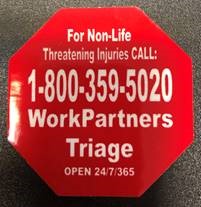DO:
- Do inspect an extension cord for physical damage before use.
- Do check the wattage rating on the appliance or tool that will use the extension cord; do not use an extension cord with a lower rating.
- Do make sure all equipment and extension cords bear the mark of an independent testing laboratory such as UL (Underwriter’s Laboratories).
- Do fully insert the extension cord into the outlet.
- Do replace an outlet if a plug is too loose in the outlet.
- Do match up the plug and extension cord on a polarized cord (one hole on the plug is larger than the other.)
- Do keep extension cords away from water.
- Do use GFCI (ground fault circuit interrupter) protection when using extension cords in wet or damp environments.
- Do pull on the plug, not the cord, when removing an extension cord from the outlet.
- Do unplug extension cords when not in use.
- Do keep slack in flexible extension cords to prevent tension on electrical terminals.
- Do put safety covers on the unused receptacle outlets on extension cords.
- Do reduce long cord lengths by installing additional electrical outlets.
- Do consider installing overhead pendants to reduce trip hazards.
- Do use cord protectors if a cord must cross an aisle.
- Do use three-wire extension cords from the power source to the end use. (Temporary power must run through a GFCI in construction. Use double-insulated tools with two-prong plugs when plugging into a three-wire extension cord.)
Do Not:
- Do not use an indoor extension cord outdoors.
- Do not overload cords with more than the proper electrical load.
- Do not run extension cords through doorways, holes in ceilings, walls, or floors.
- Do not move, bend, or modify any of the extension cord plug’s metal parts.
- Do not daisy chain, or connect, multiple power strips together.
- Do not force a plug into an outlet.
- Do not use an extension cord when it is wet.
- Do not overheat an extension cord.
- Do not cover an extension cord with anything other than a cord protector.
- Do not drive over an extension cord.
- Do not drag an extension cord.
- Do not attach extension cords to the wall with nails or staples.

